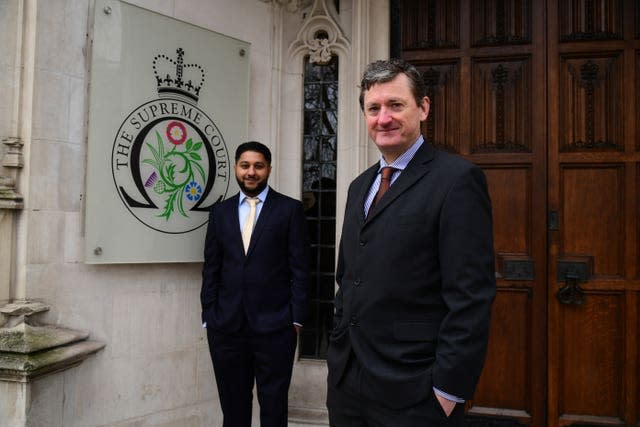One Supreme Court justice delivered an 18,500-word Uber ruling
The Supreme Court 18,500-word ruling was delivered by one justice, Lord Leggatt – all the other judges on the panel said they agreed with his conclusions.
Two drivers had made employment tribunal claims, Yaseen Aslam and James Farrar.
Both were licensed to drive private hire vehicles in London
Lord Leggatt described them as test claimants.
He said at the time of the 2016 employment tribunal hearing, there were about 30,000 Uber drivers operating in the London area and 40,000 in the UK.
About two million people had been registered to use the Uber app as passengers in London.
He said Uber’s business model was “simple”.
Prospective customers download the Uber app, for free, to their smartphone and create an account by providing personal information, including a method of payment.

They were then able to request rides
Lord Leggatt said it was of “major importance” that “remuneration paid to drivers for the work they do” was fixed by Uber.
Drivers had no say other than by choosing when and how much to work.
He said contractual terms on which drivers perform their services were “dictated” by Uber.
The Uber operator handled passenger complaints, including complaints about a driver, and decided whether to make any refund to the passenger, sometimes without even “referring the matter” to the driver concerned.
Lord Leggatt said the “transportation service performed by drivers and offered to passengers” through the Uber app was “very tightly defined and controlled” by Uber.
He said the definition of a “worker”, in employment legislation, included anyone employed under a contract of employment but also extended to some individuals who are self-employed – in particular, the definition included an individual who works under a contract “whereby the individual undertakes to do or perform personally any work or services for another party to the contract whose status is not by virtue of the contract that of a client or customer of any profession or business undertaking carried on by the individual”.
Lord Leggatt dismissed Uber’s appeal.
He said the employment tribunal which originally considered the case was entitled to conclude that, by logging onto the Uber app in London, a claimant driver came within the definition of a “worker” and undertook to perform driving services for Uber.


